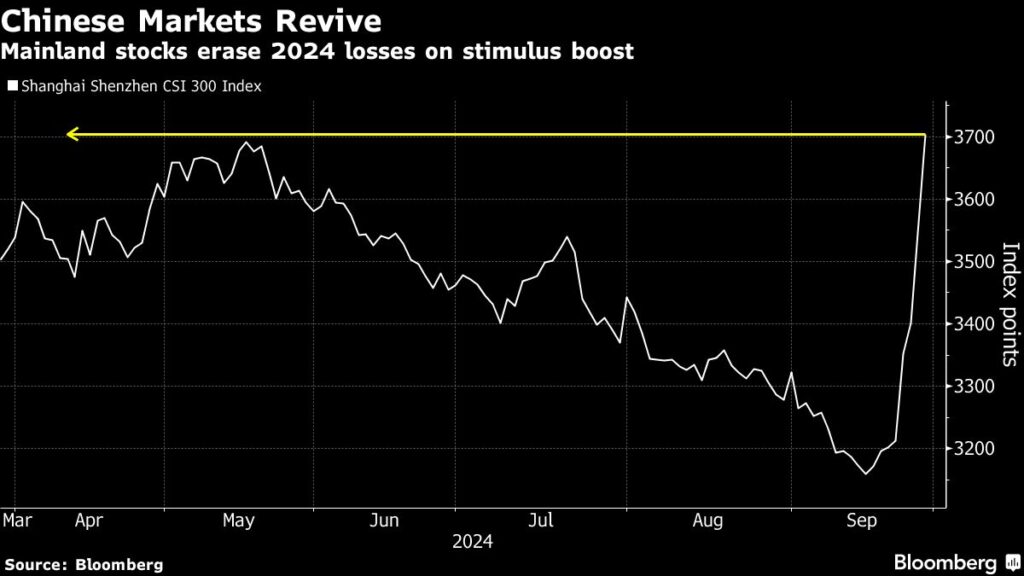(Bloomberg) — Emerging-market stocks and currencies capped a week of consecutive gains on Friday as China’s stimulus measures and cemented bets of further rate cuts by the Federal Reserve supported riskier assets.
Most Read from Bloomberg
The MSCI index for emerging stocks closed 1% higher, bringing its weekly rally to 6.2%, the biggest since November 2020. The index for developing currencies gained 0.2%.
The Fed’s preferred gauge of underlying US inflation, released Friday, gained moderately in August, with the core personal consumption expenditures price index rising 0.1%, the least in three months. At the same time, China’s stimulus measures continue to lift risk sentiment for emerging markets.
“It’s been a good rally with the China stimulus announcement this week lighting up risk sentiment,” said Gordian Kemen, head of emerging markets sovereign strategy at Standard Chartered Bank. The PCE data also helped, though the impact is fairly small, he added.
In the past 10 days, emerging-market investors have seen their biggest demands met in quick succession. After the Federal Reserve delivered a larger-than-anticipated cut to its interest rates, China followed up with multiple rate reductions, relaxation of bank reserves, and a specific program to support equity markets.
“This stimulus has brought back China onto investors’ radar,” said Rajat Agarwal, an equity strategist at Societe Generale SA. “China’s equity fundamentals were gradually normalizing, but the stimulus, including that targeted at the stock market, should help restore the missing confidence in the market.”
In the currency market, Mexico’s peso dropped as the country’s Deputy Finance Minister Gabriel Yorio is set to leave his post after spending almost six years as a senior official in the finance ministry under President Andres Manuel Lopez Obrador. The currency underperformed most emerging peers.
Asian currencies led gains, with the Taiwanese dollar and South Korean won outperforming. The Malaysian ringgit rose to the highest level since June 2021.
In credit markets, Sri Lanka bonds outperformed peers as the nation’s central bank governor Nandalal Weerasinghe said the country is in the final stage of debt restructuring. Senegal’s sovereign dollar bonds tumbled the most among developing nations on Friday after the government announced a probe into the previous administration for painting an unrealistic picture of the country’s finances. Bonds of Petroleos Mexicanos SA rallied after JPMorgan said it’s time to load up on the debt ahead of a possible credit-rating upgrade.
Israel’s credit rating was cut two notches by Moody’s Ratings to Baa1 from A2, maintaining a negative outlook, citing significantly intensified geopolitical risk. The country has kept up attacks of Hezbollah targets in Lebanon while international allies pushed for a cease-fire. The shekel dropped 0.8% against the dollar before the currency stopped trading for the day.
Most Read from Bloomberg Businessweek
©2024 Bloomberg L.P.
Read the full article here

